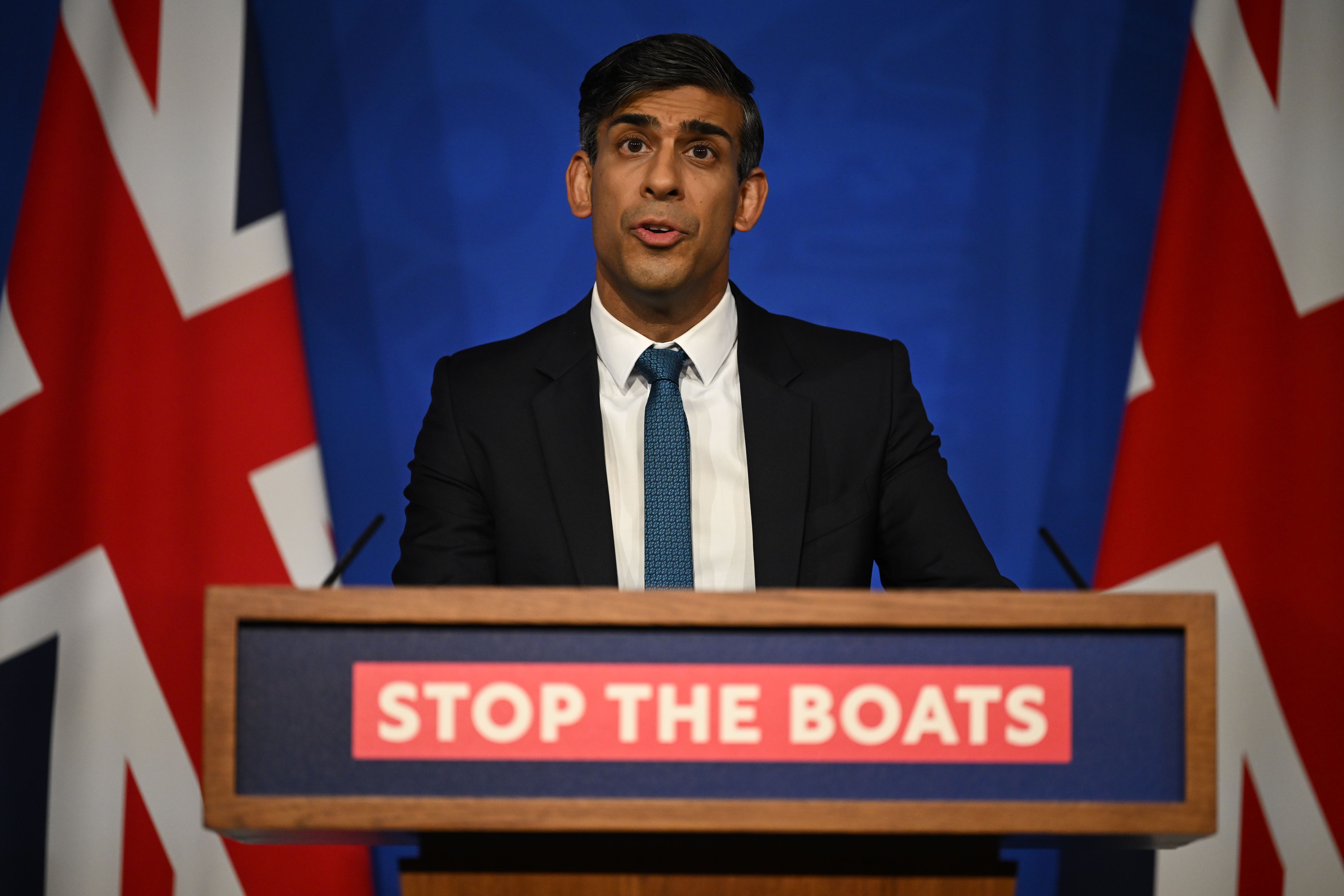The Rwanda report has turned ‘stop the boats’ into Sunak’s epitaph
Editorial: A scathing Commons study concludes that the government’s deportation plan lacks credibility, that ‘unacceptable mistakes’ have been made, and that vast sums of public money have been wasted. Rwanda will forever be a byword for massive policy failure

After two years, countless attempts to get refugees deported, endless legal wrangles and numerous pieces of legislation, the Rwanda plan remains more a theoretical construct than a functioning part of the machinery of state.
Whatever Rishi Sunak’s motivations for calling his surprise general election, the suspicion must be that even he – who has inexplicably made it the flagship policy of his administration – didn’t expect the flights to actually take off for Kigali this summer.
For Mr Sunak, the promise of the Rwanda plan is more useful to him than further evidence of its essential redundancy. Rather than risk another run-in with the European Court of Human Rights and the UK Supreme Court on whether the scheme is lawful and constitutional, he has instead opted to pretend that the “deterrent effect” is already making itself felt.
Well, to recycle a slogan from the Brexit years, no plan is better than a bad plan.
It should come as no great surprise to anyone that this is essentially the verdict of the Commons Public Accounts Committee on Mr Sunak’s scheme. In a scathing report that covers the full breadth of the UK’s malfunctioning asylum system, the cross-party panel of MPs concludes that the Rwanda plan lacks credibility, that “unacceptable mistakes” have been made, and that vast sums of public money have been wasted on as-yet unused accommodation.
Among the many flaws in the current system, the committee focuses on the way that the refusal to process any claims from so-called illegal migrants – in reality lawful refugees – has left thousands of them in a state of limbo. Because the government passed a law that stated their claims could not be processed, it is impossible for them to be granted asylum, even if they are genuinely fleeing persecution, torture and threat of death.
But many of them cannot be sent back to their home countries because it would be unsafe to do so. Neither, under the latest iteration of the UK-Rwanda treaty, can the Rwandans send them back from whence they came, or anywhere else that is deemed dangerous – the risk of “refoulement” identified by the Supreme Court as a finding of fact.
And so they languish in hotel rooms – or, as it turns out, at even greater cost in makeshift camps organised by the Home Office. In the case of this most recent cohort of refugees, there seems no prospect of clearing the backlog of claims because they haven’t even made a claim – yet, astonishingly, the government doesn’t seem to know what to do with them. Nor, as the Public Accounts Committee reports, does it know how to safeguard them – nor even some of their whereabouts.
Electorally, the Rwanda plan – or, rather, its continuing doubtful transition into reality – isn’t turning into a vote-winner. Even Nigel Farage, a man not famed for his compassion, thinks it an irrelevance, and it has done little to tempt disillusioned Conservatives back from Reform UK or a determination to abstain on polling day. It is far too late now for the prime minister to either make the plan work or abandon it, and so it staggers on, zombie-like, until Sir Keir Starmer and Yvette Cooper euthanise it on day one of a Labour government.
Like the stories of Suez, the poll tax, Brexit and HS2, the Rwanda plan is destined to become another study in massive policy failure. Perhaps one day we will learn how a man as rational and supposedly prudent as Mr Sunak became mesmerised by a Johnsonian gimmick he was never much impressed by before he became prime minister – but will define his premiership.
“Stop the boats” is now less of an election-winning soundbite than a rather pathetic epitaph. Something for Mr Sunak to ponder, then, in his post-prime ministerial career.
Join our commenting forum
Join thought-provoking conversations, follow other Independent readers and see their replies
Comments
Bookmark popover
Removed from bookmarks